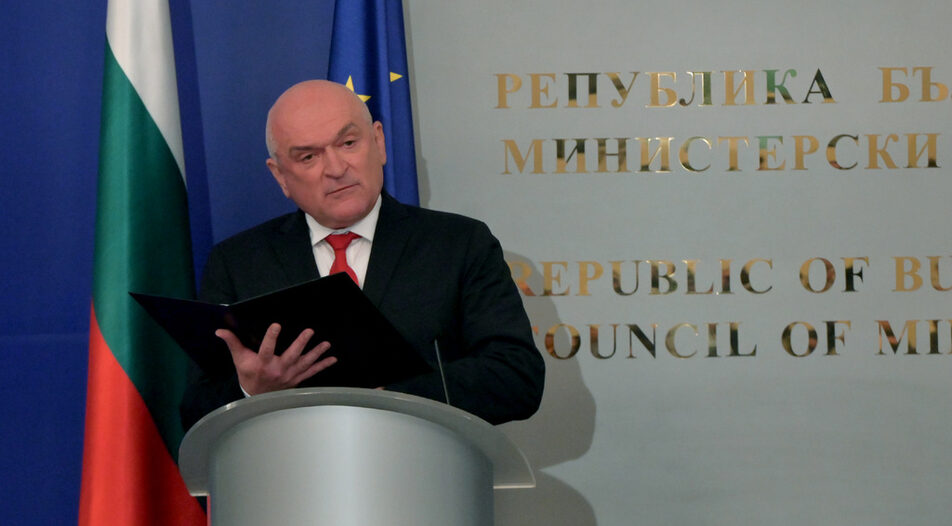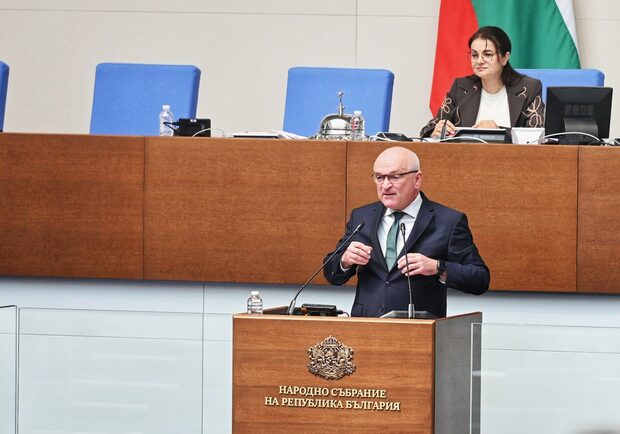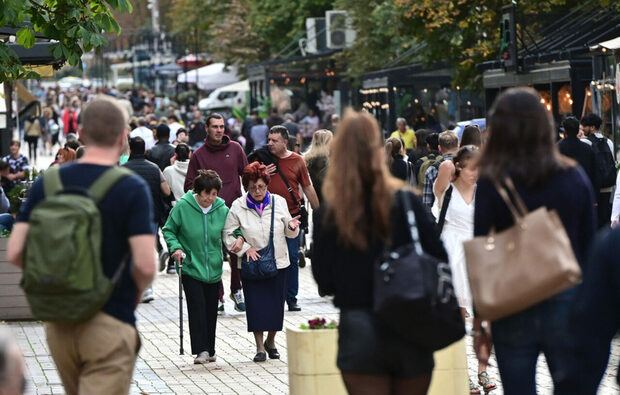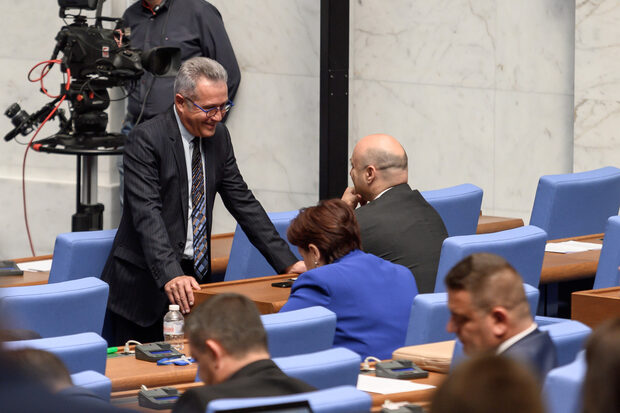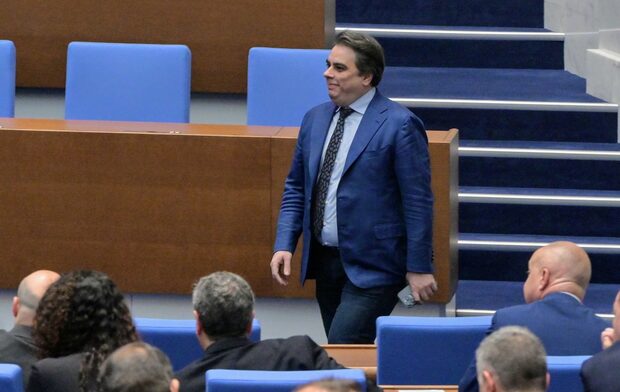Less than two weeks after taking office the newly formed caretaker government of PM Dimitar Glavchev has abandoned all pretense of being a neutral transitional authority. In the past week, almost all senior and second-tier appointments made by WCC-DB in key sectors, most notably in energy, security, justice and healthcare - have been replaced by people close to GERB and MRF, with the active support of the two parties in Parliament.
In parallel, important reforms such as the liberalization of the electricity market, which is a condition for the EU Recovery Plan funds, are casually being postponed for a year, jeopardizing billions in EU funding. The same applies to judicial reform, with the delayed submission and pending amendment of the draft Judiciary Law, which could turn its basic principles at 180 degrees, as happened with the ill-fated attempt at similar reform in 2015.
This, in summary, is the picture of the last two weeks of interim rule under the new constitutional rules, which ushered in GERB's formal return to power - not without the help of their unofficial partners from the MRF. The June election results will show whether anything can prevent the full-scale return of the status quo of 2014-2020.
Ministerial reshuffles shows cabinet's string pullers
Ten days after the official inauguration of the Glavchev cabinet, it's obvious who's in charge. On 15 April, GERB leader Boyko Borissov demanded the resignation of Foreign Minister Stefan Dimitrov in front of party activists in Sofia. Two hours later the PM obliged, nominating ex-Foreign Minister (2014-2017) and GERB deputy chairman Daniel Mitov to replace him. Borissov called the rotation, requested by him and executed immediately by Glavchev, a "coincidence", but his explanation sounded, to say the least, ridiculous.
In the balance of power within the Glavchev cabinet, the MFA was in the sphere of influence of President Rumen Radev. And the attempt to replace him with a loyal party cadre of Borissov in practice means that the GERB leader wants to maintain his control over foreign policy, which he did through Mariya Gabriel in the rotating government of Nikolay Denkov.
It's easy to explain Borissov's attempt to preserve his position in the foreign sphere - it's vital for him to keep international partners on side to clean up his image internationally, after his partnership with WCC-DB helped him launder his image domestically. It is no coincidence that Borissov's ultimatum to replace the foreign minister coincided with a one-day visit by US Assistant Secretary of State for Europe and Eurasia James O'Brien, who until taking office last October was responsible for enforcing US sanctions, including under the Magnitsky Act. According to unofficial information, the GERB leader pledged to O'Brien that the government of Glavchev, who until recently was a member of GERB, would not deviate from its current pro-Western direction. Borissov, however, will find it difficult to fulfill this promise if the foreign ministry is under the umbrella of the presidency, which has different views on the country's foreign policy, especially on Russia, and with a minister who is linked to circles close to BSP.
Borissov offers Radev a deal
Because of the reshuffle in the MFA, Borissov offered the president a deal - the replacement of Agriculture Minister Kiril Vatev with the current executive director of the Agriculture Fund Georgi Tahov. He was appointed to the post during the caretaker cabinet of Galab Donev and is considered close to presidential circles, headed by his secretary Nikolai Koprinkov, as well as to the MRF. Borissov suggested Tahov as a possible candidate for agriculture minister in the failed second rotating government of GERB and WCC-DB. The Ministry of Agriculture is one of the most resource-, and hence - corruption-intensive departments and traditionally under the influence of the MRF - about 3 billion levs are distributed annually through the Agriculture Fund alone.
The request to replace two ministers just a week after their appointment, besides setting a precedent, will exacerbate relations between the caretaker PM and Radev, who has to issue the decree with the ministerial reshuffles requested by Glavchev. "I want to hear the real motives that made Mr Glavchev so abruptly, without having worked with these people, without knowing them, suddenly change his mind about them," the President said on Wednesday. From his words it was understood that he disapproved of the proposal to appoint Mitov as foreign minister because of his strongly partisan candidacy. "We have many wonderful diplomats with the qualities to be ministers, so we can always find a worthy foreign minister," Radev said.
On Friday Radev held talks with Glavchev, and after their meeting Mitov announced he was withdrawing his nomination for Foreign Minister and on Saturday - in a move called "avant-garde" by Radev, Glavchev proposed that, instead of appointing a new Foreign Minister, he could personally assume the post alongside his role as a PM. On Monday, this avant-garde idea came into being, with Radev signing a decree that made Glavchev Foreign Minister as well.
GERB regains its strongholds
Before the talk of ministerial changes began, the Glavchev cabinet had already launched a shock replacement of deputy ministers and board members of state-owned companies in various key sectors. This marks a continuation of GERB's bid to regain positions it has lost over the last three years. For example, in the finance ministry, one of the deputies of caretaker minister Lyudmila Petkova (known to be close to MRF) - Martin Danovski, was for many years an adviser to Tomislav Donchev from the time when he was deputy PM. The new health minister Galya Kondeva, on the other hand, revoked the order to fire the president of the Pirogov hospital and appointed Ivanka Dineva - who was rejected by the WCC-DB as director of the health insurance fund - to the supervisory board of the said fund.
Massive reshuffles were also made in state-owned energy companies, including in the management bodies of Bulgargaz, Maritsa-East mines, the Bulgarian-Greek ICGB company, which operates the gas interconnector between Bulgaria and Greece, as well as Kozloduy NPP - New Capacities, where people close to the chairman of the parliamentary energy committee Delyan Dobrev from GERB were appointed to management positions.
Contrary to the previously stated intentions that the former minister of e-government Alexander Yolovski would be an adviser to the new minister Valentin Mundrov, he was appointed his deputy. His remaining in this position is probably a form of compensation for his role in the scandal with the certification of voting machines before the local elections, which failed to use them in the first round of voting. Then the WCC-DB, from whose quota Yolovski was a minister, demanded his resignation, but he retained his post with the support of GERB and MRF and accused the co-chairman of the WCC-DB Kiril Petkov and MP Bozhidar Bojanov of pressuring him to arrange public procurements in a direction, desired by the two. The list goes on - people from the second tier of the regional, agricultural and internal ministries, appointed during GERB's reign, are now replacing the WCC-DB cadres.
The appointments in the Justice Ministry show that it has been taken over by people from the subordinate prosecutor's office of Prosecutor General Borislav Sarafov and the chairman of the Supreme Administrative Court Georgi Cholakov, considered close to Borissov and MRF's co-chairman Delyan Peevski.
More appointments are yet to be made in the second echelon of the caretaker government, and possibly in the regional governorates as well, but it is clear from the rotations so far that Glavchev's government is preparing the state government for the return of GERB and MRF.
Less than two weeks after taking office the newly formed caretaker government of PM Dimitar Glavchev has abandoned all pretense of being a neutral transitional authority. In the past week, almost all senior and second-tier appointments made by WCC-DB in key sectors, most notably in energy, security, justice and healthcare - have been replaced by people close to GERB and MRF, with the active support of the two parties in Parliament.
In parallel, important reforms such as the liberalization of the electricity market, which is a condition for the EU Recovery Plan funds, are casually being postponed for a year, jeopardizing billions in EU funding. The same applies to judicial reform, with the delayed submission and pending amendment of the draft Judiciary Law, which could turn its basic principles at 180 degrees, as happened with the ill-fated attempt at similar reform in 2015.








